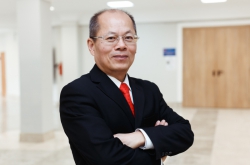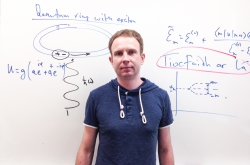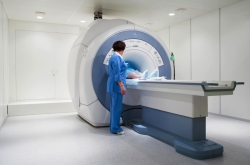I graduated from National Research Nuclear University MEPhI (Moscow Engineering Physics Institute) and then defend my PhD thesis at Lebedev Physical Institute of the Russian Academy of Sciences (LPI RAS) in which I also started my research activities and where I continue to work till present day. It is one of the largest RAS`s branches; its` researchers deal with almost all areas of physics. After the collapse of the Soviet Union I started collaborating with international researchers from Germany, France, Denmark, the USA, Japan and many other countries. A lot of researchers followed this way: some of them moved abroad initiated their own business projects, made a career and so on. Unlike these scientists I decided to stay in Russia.
Please share you impressions about ITMO University.
First of all it is in St. Petersburg, which is quite closer to Moscow than the USA and Japan! So it is easier for me to come back home. Furthermore the Government of the Russian Federation invests in research centers to develop Russian science. ITMO University is one of them. Using this support ITMO university scientists make great progress in their research activities. I like teamwork with ambitious and motivated young researchers.
You had various business trips to many countries. Why did you choose Russia?
It is not the first time when I`m asked this question. I always wanted to stay in Russia, to be its` resident because my family and friends stay here. Obviously, gaining international experience is very important for a researcher but instead of fruitful collaboration and high salaries I never wanted to leave. Moreover, here I can work as a researcher in spite of the fact that I`ve reached the retirement age.
However some Canadian and American universities offer professor`s permanent job contracts.
Not exactly. Notable scientists have a title of “Emeritus Professor” but they are limited in their opportunities. For example, they receive extremely trimmed salary (about 5—10 per cent of the total). Some people are full of illusions about living in Europe. Despite high standard of living European countries have some problems, they differ from Russian but they exist.
What is your research field?
I focused on various problems. Currently I deal with nano lasers and nano receivers. My colleagues from ITMO University and I provide activities connected with nanoplasmonics. Developing of such systems as nanoplasmonic integrated circuits is very relevant because they are used in computers, smartphones and other devices. There are also optical integrated circuits containing lasers that emit light and waveguides that guide light rays. According to the results of recent research, plasmonic circuits can combine optical and electronic signals. These circuits need a special wave source, which guides plasmonic waves. I deal with these systems using tunneling. If to put metals close to each other and charge them with electricity so called tunneling current will appear. While tunneling from one metal to another one electrons can provoke plasmons. This process can serve as the wave source. Currently we try to put this theory into practice.
Furthermore I suppose that research activities shouldn`t be divided into theoretical and applicable. One has to solve applied problems using theory. It will help to develop more relevant and commercially successful devises.
What should local universities do to attract those researchers who have left Russia?
I think that they should be offered good living and working conditions. Furthermore researchers want to be sure that their projects are relevant. I see that some positive trends appear in Russian science. It takes a turn for the better!



